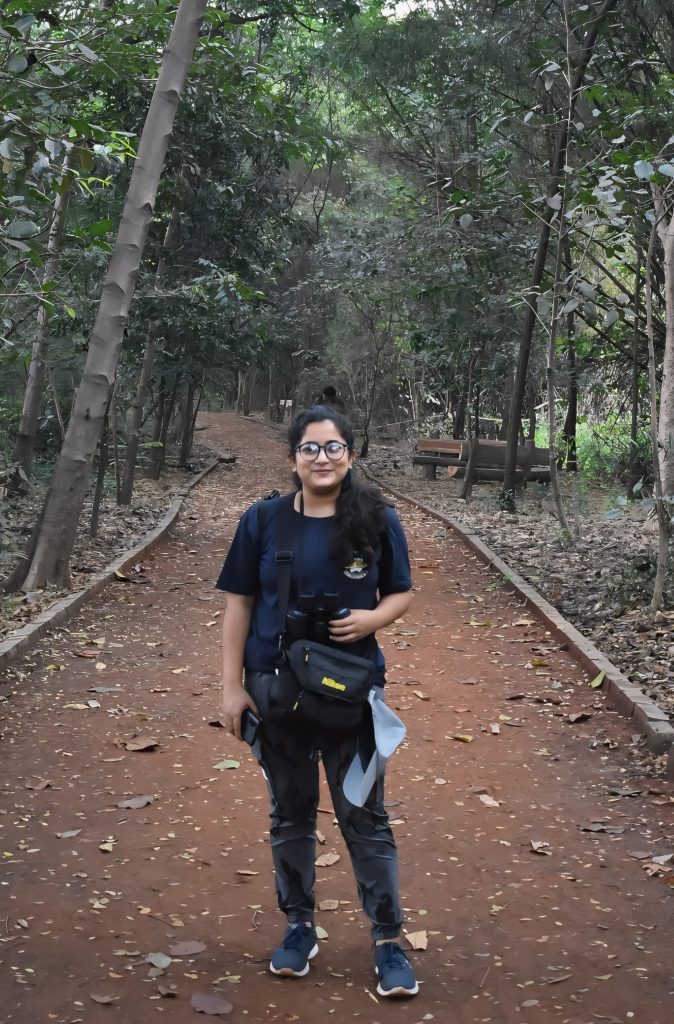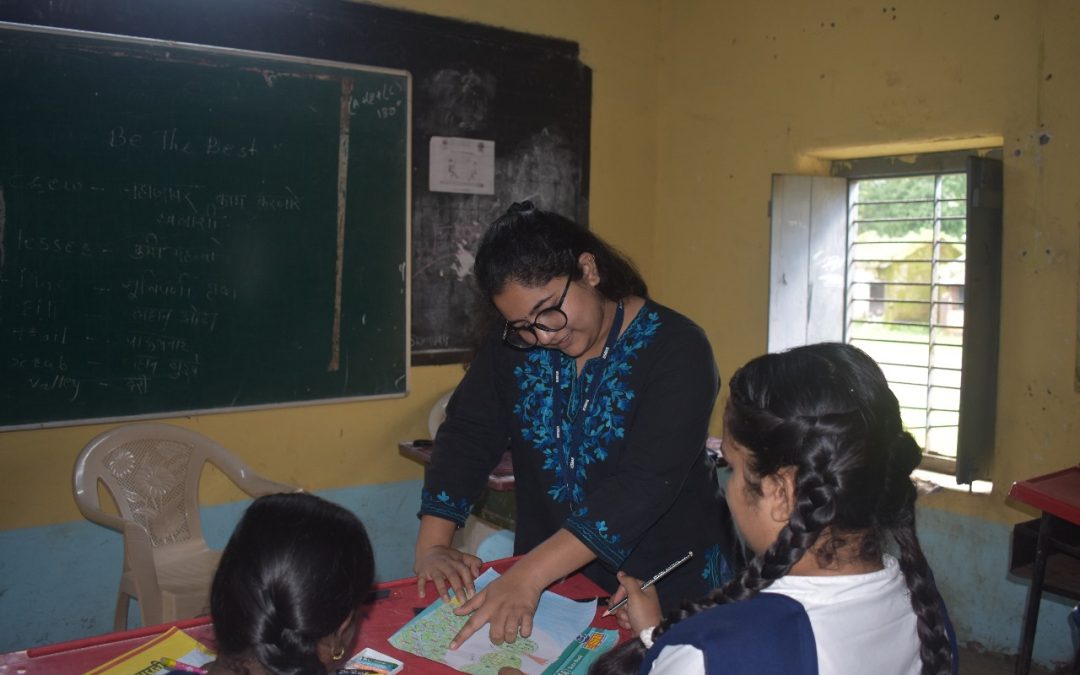Welcoming Bhairavi who has joined our partner Satpuda Foundation as an Education Officer.
Hailing from Nagpur, the Tiger capital of India, Bhairavi tells us how her childhood fascination with forests and wildlife inspired her to take up a career in conservation and what her new role entails.
- Tell us more about yourself and what got you interested in working for the environment.
Hailing from Nagpur, the “tiger capital of India”, my childhood fascination with birds, butterflies, and forests led me to explore wildlife. While exploring, I started participating in the weekend bird watching excursions, which piqued my interest in the field of wildlife. Later, I pursued a Master’s degree in Wildlife Conservation Action in order to turn my passion into a career.
- How does a typical day unfold for you? Tell us a bit about your daily tasks and conservation work.
Being an environment educationist, I develop localized educational and awareness materials for the students and village elders from the villages located in the buffer areas of various Tiger Reserves of Central India.
I also coordinate with teachers from city schools to organize educational programs. By working closely with them, we hope to make a positive impact on conservation efforts in the region.
- What do you love about your current job?
Every day presents me with opportunities to learn and improve my skills, allowing me to apply the theoretical knowledge gained during my studies to practical scenarios in my job. Through this job, I get to interact with students and the community. Even though they coexist with wildlife, the younger generation’s concern and curiosity for nature is clearly seen. It’s really inspiring. I also get to explore the wilderness areas during the field visits.
- Could you share a key learning or experience from the field?
Our students are the future, and teaching them about conservation helps shape their behaviour by sparking their curiosity and interest in nature. As they learn about nature, they also learn to care for it and take responsibility for protecting it and society. It’s important to involve the younger generation in conservation efforts because they hold the key to long-term sustainability.
- Do you feel optimistic about the future of the natural environment of India? Have you experienced a positive change regarding conservation in your area ?
Through collaborative efforts with the Forest department, we have witnessed only 1% of fire incidents as compared to 2021. Our initiative, the “Angaar Mukta Jungle” program, targeted communities and school students, effectively spreading awareness about preventing forest fires.
Also, the tiger population has increased to 3167, over the years, it is definitely the result of collaborative work between NGO’s, Forest Department, local community members, and other stakeholders.
Through such news, I can say that I’m optimistic about the future of India’s natural environment.


